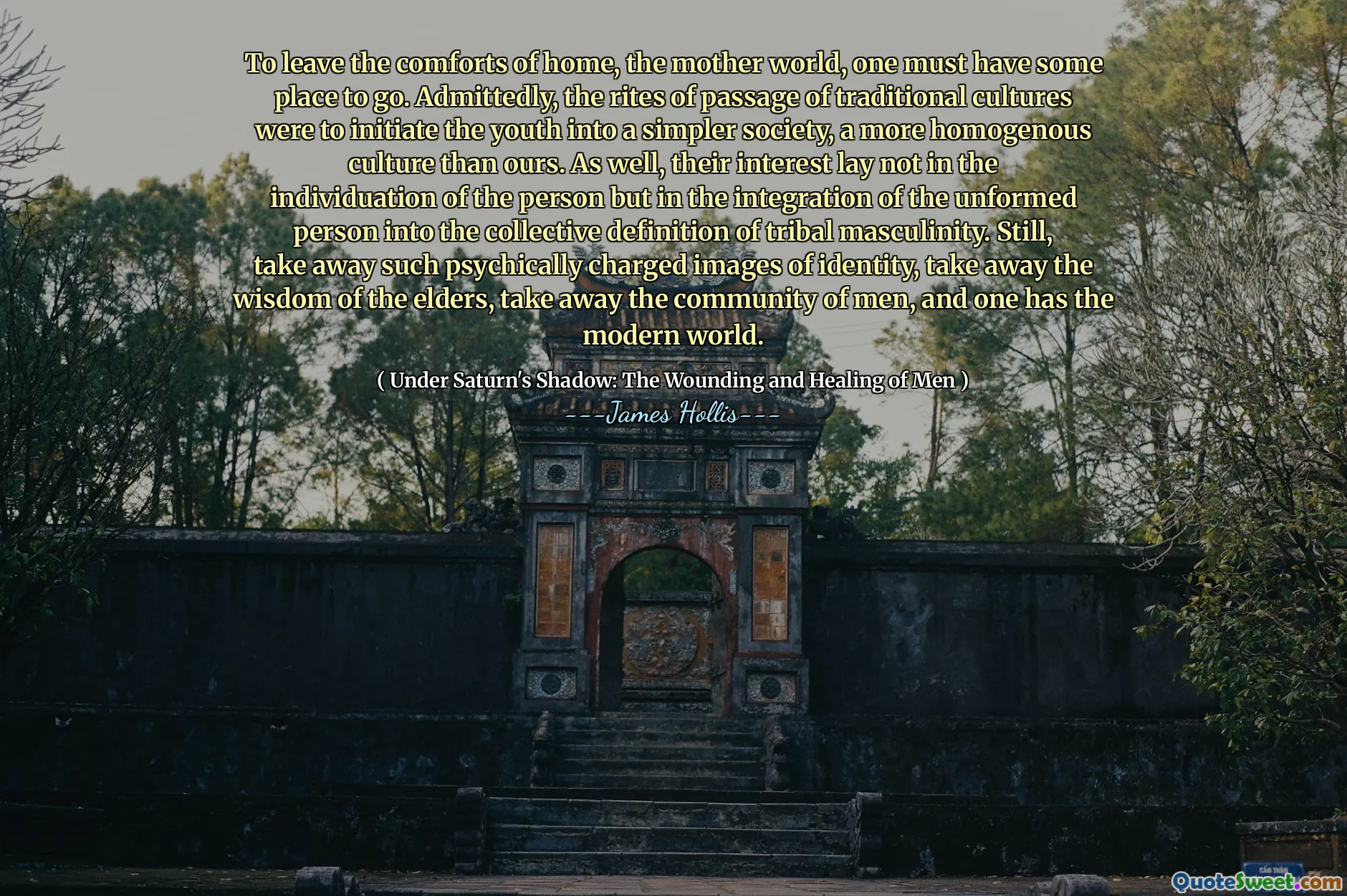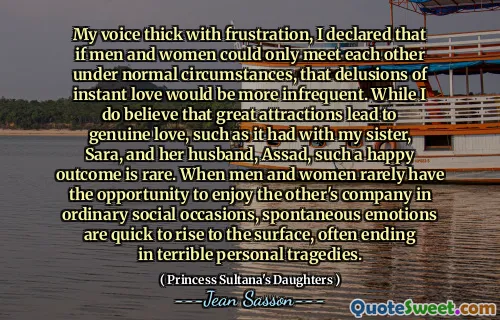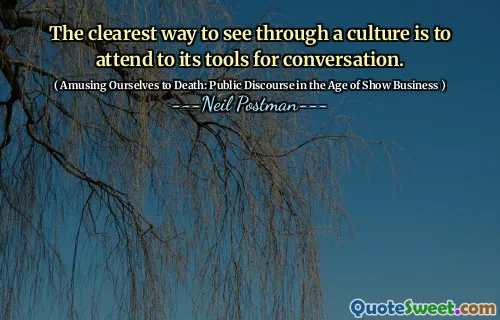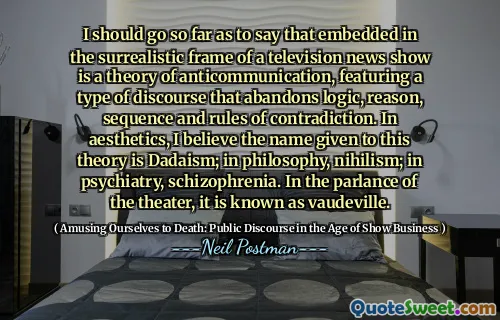
To leave the comforts of home, the mother world, one must have some place to go. Admittedly, the rites of passage of traditional cultures were to initiate the youth into a simpler society, a more homogenous culture than ours. As well, their interest lay not in the individuation of the person but in the integration of the unformed person into the collective definition of tribal masculinity. Still, take away such psychically charged images of identity, take away the wisdom of the elders, take away the community of men, and one has the modern world.
This quote highlights the profound transformation that occurs when individuals step away from the familiar comforts of their origins and embark on a journey of identity and self-discovery. In traditional societies, rites of passage served as vital ceremonies that not only marked critical life stages but also reinforced collective values, shared wisdom, and a sense of belonging. These rituals provided a structured environment for young people to integrate into their community's collective identity, often emphasizing communal masculinity over individual differentiation. Such practices helped facilitate psychological integration, ensuring that men found their place within the social fabric while gaining wisdom from elders and communal support. However, in the modern context, these rituals and collective bonds seem diminished or absent, leaving many feeling unanchored and disconnected from their roots and communal wisdom. The passage suggests that a crucial component of a mature identity—particularly masculinity—is rooted in understanding one's place within a community and learning from collective traditions. Without these anchors—elders' guidance, shared rituals, and communal support—individuals might struggle with meaning, purpose, and psychological integration. This reflection underscores the importance of community, tradition, and shared wisdom in shaping a balanced, integrated sense of self amidst the complexities of modern life, where solitude and individualism are often emphasized at the expense of collective bonds.





